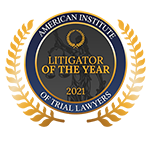What Is A Guardian Ad Litem?
December, 2010
Being a lawyer practicing in the area of family law, we deal quite a bit with the appointment of a Guardian Ad Litem. This term may be foreign to anyone facing a difficult custody battle, but it is important to know the role a guardian plays in our Court system.
Guardians are appointed by the Court upon the request of either party to represent the best interest of the children. In a court of law, Guardian Ad Litem literally means, “guardian for the suit.” A guardian ad litem in Georgia is an attorney or non-attorney appointed by a judge to assist the Court in determining the circumstances of the matter. A guardian is empowered to investigate the entire background, living conditions, family relationships, and any matters related in order to make a recommendation to the court as to what would be in the best interests of the child as to placement, visitation, and other matters ruled upon by the court.
They can make home visits; speak with anyone in person, by phone, or any other method of communication. They can also, subpoena witnesses to testify and to appear in court. The guardian usually makes a report to the court recommending a specific outcome. The parties do not have to accept the report, but can present their own witnesses and evidence in court. The Judge makes the final determination on the disposition of the children. However, the report of the guardian, if presented properly to the parties prior to trial, can sometimes lead to settlement of the issues without the expense of a trial. Often times, the parties in a divorce battling for custody are wrapped up in his or her case along with their respective grounds for claiming custody. Absent direct evidence showing the Court it would be in the child’s best interest to reside with a particular parent, the guardian is able to collect evidence as a true neutral. Often times the Guardian is able to refute false information alleged through contact with the children, interviews with witnesses, and home visits. Guardians’ have access to all school records, medical records, expert records, etc. This provides important data to the Guardian in order to make an informed decision.
A guardian does charge for services. If you are in the middle of a contested battle, you are likely paying a substantial portion of attorneys fees. The guardian fee is no different. Guardians charge by the hour, and require a retainer up front. The Court often mandates the parties split the guardian fee, but on occasion will allocation proportionate shares to parties based on income levels.
For information about Guardian Ad Litem’s please take a look at the following links:
http://avlf.org/guardian.html
http://www.georgiaadvocates.org/calendar/event.233886-Guardian_ad_Litem_Training
If you would like more information on this topic, please feel free to contact me at 678-601-2495 or via email at [email protected] for an initial consultation.
















